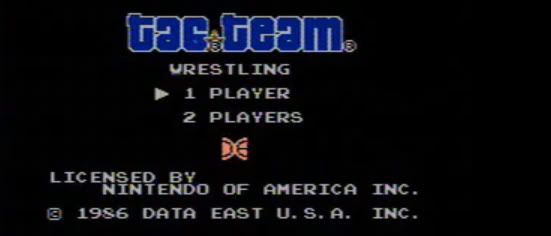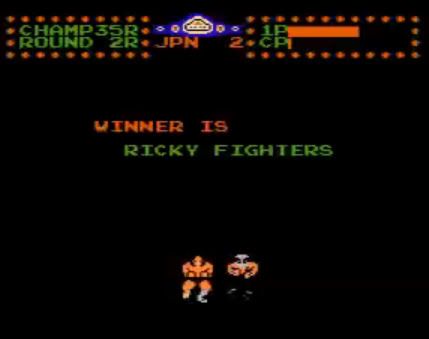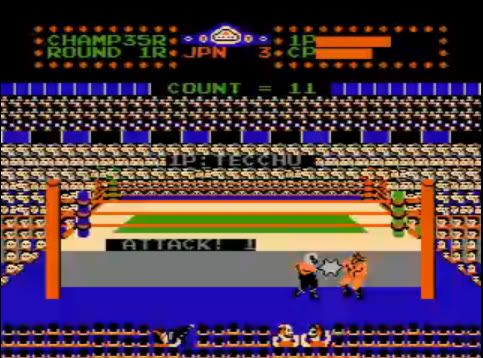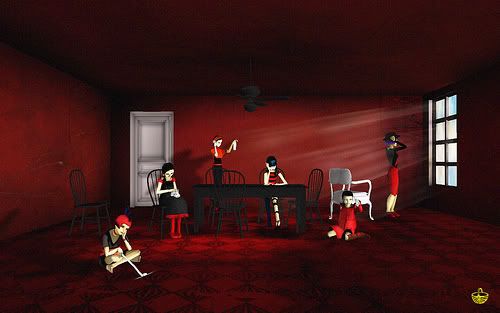
Tag Team Wrestling began life in Japanese arcades under the title The Big Pro Wrestling! It was ported to the Famicom as Tag Team Pro Wrestling, and finally brought to the NES by Data East as Tag Team Wrestling in 1986. Released months before Nintendo’s landmark Pro Wrestling, the game innovated in two major ways. First, it featured tag team matches, something rarely seen in wrestling video games. Second, its control scheme was unlike any wrestling game before or since.
Innovation, however, isn’t necessarily a good thing. While it did beat better games to the punch in featuring tag team matches, Tag Team Wrestling’s gameplay is hilariously bad. In most wrestling games, moves are executed from a grapple, while running, or from the top rope. On machines with only two or three buttons, this limits the number of moves, but it works. Tag Team Wrestling tried to offer a larger moveset, but did so in a way that makes it feel nothing like a wrestling match.
Here’s how it works. You start by trying to land a strike on your opponent. If you’re successful, you're presented with a menu of moves you can execute, and three seconds to scroll through it. This mechanic is, to put it plainly, a disaster. Many move names have been reduced to baffling English abbreviations, and some haven't even been translated. It’s barely possible to scroll to the end of the list in three seconds, let alone make sense of choices like “B BRIK” and “TECCHU”.
With experience, you can get the hang of navigating the move menu, but you can’t do anything to mitigate the game’s other mechanic. Remember how Hulk Hogan used to delight audiences by appearing to become invulnerable while making a spectacular comeback? Well, that happens in Tag Team Wrestling, as well, only it’s the heel team who do it. Supposedly, this is a consequence of avoiding contact with your opponent for too long, but it never works that way. More often than not, he’ll just go invincible any time you start winning, ensuring that only luck can carry you to victory.
Maybe the awfulness of the gameplay could be rationalized if Tag Team Wrestling excelled elsewhere, but it doesn’t. Character animation is extremely limited. No move consists of more than two frames of animation. Flying moves and falls consist of the sprites being rotated to give the illusion of jumping or laying down. The only aspect of the game that is even passable is the audio. The music which plays during matches is nice and urgent, if repetitive, and there’s even (bad) digitized voice for the wrestlers’ grunts and the referee’s three count. It hardly salvages the game, but it’s something.
Despite all this, I would kind of recommend giving Tag Team Wrestling a shot. Sure, the game is a barely playable mess, but it does have one endearing quality. Your current ranking is always displayed on screen, and watching it move one step closer to the top rank in your current tier with each victory can be addicting. It’s like an MMO in that sense, always dangling another carrot in front of you. Sometimes that's all it takes to hook you, even if the the only reward the game has to offer is yet another frustrating battle with The Strong Bads.







